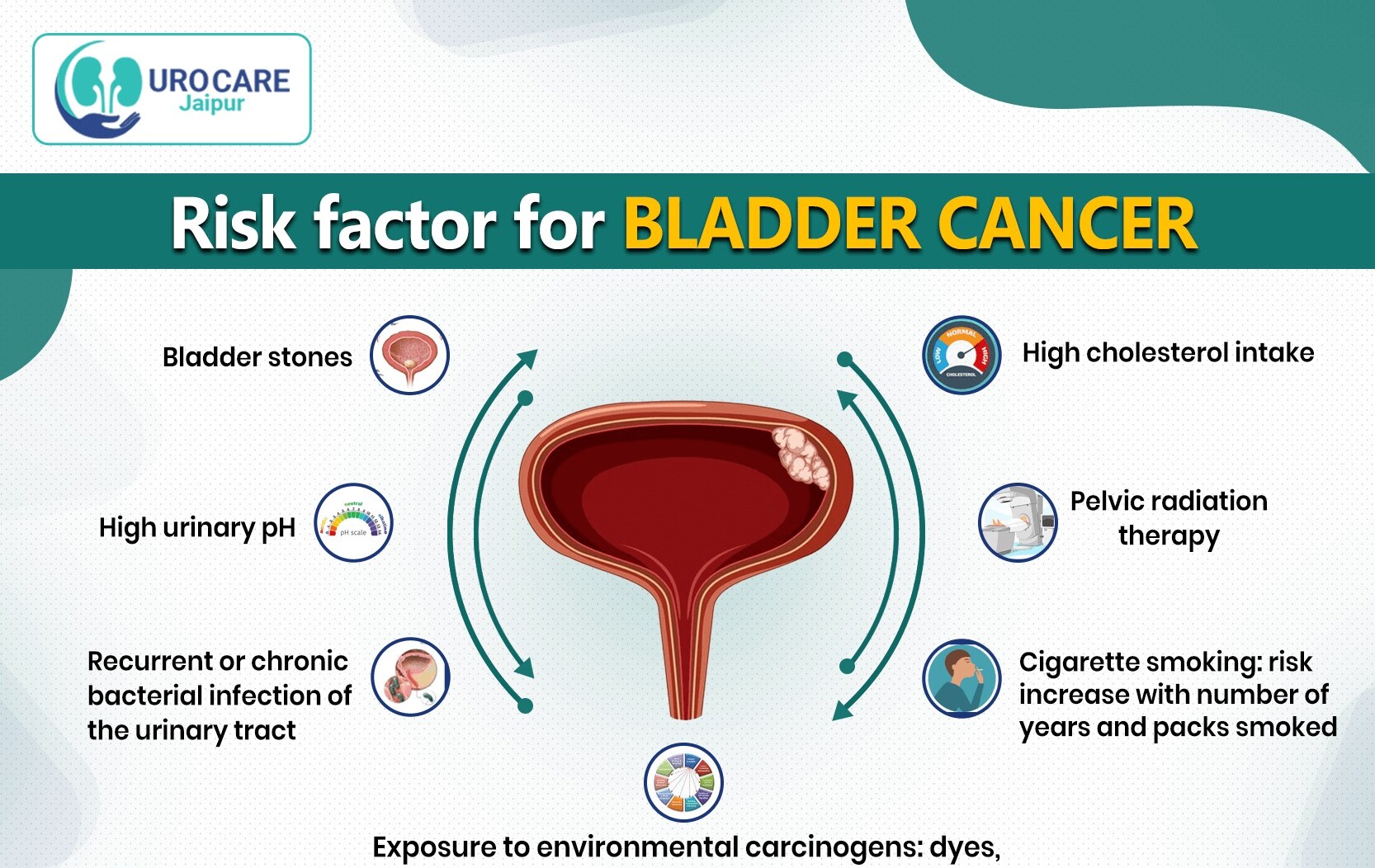How Smoking Increases the Risk of Bladder Cancer: Smoking is a known risk factor for bladder cancer, and the rates of bladder cancer are high in people who smoke. The link between smoking and bladder cancer is not fully understood, but it is thought that smoking can increase the risk of developing the disease. It is important to quit smoking if you have been diagnosed with bladder cancer. In this read, we will help you to know more about how smoking increases the risk on bladder cancer. Let's have a look!
Cigarette smoking increases the risk of Bladder Cancer!
Cigarette smoking is a major risk factor for bladder cancer. Studies have shown that smokers are two to three times more likely to develop bladder cancer than nonsmokers. The risk of bladder cancer increases with the number of cigarettes smoked per day and the number of years a person has been smoking. Quitting smoking can reduce the risk of bladder cancer.

How do the Chances Increases?
-
Smoking damages the cells lining the bladder, which can lead to cancer:
Smoking is a leading cause of bladder cancer. Cigarette smoking damages the cells lining the bladder, which can lead to cancer. People who smoke are more likely to develop bladder cancer than nonsmokers, and the risk increases with the number of cigarettes smoked. It also increases the risk of bladder cancer in people who have a history of the disease. People who have had bladder cancer are more likely to develop the disease again if they smoke.
-
Smoking also increases the levels of carcinogens in the urine, which increases the risk of bladder cancer:
Smoking also increases the levels of carcinogens in the urine, which increases the risk of bladder cancer. Carcinogens are chemicals that can damage DNA and cause cancer. When you smoke, carcinogens from the tobacco enter your bloodstream and are filtered out by your kidneys and end up in your urine. The more you smoke, the higher the levels of carcinogens in your urine. People who smoke are more likely to develop bladder cancer than people who don’t smoke.
-
Smokers are more likely to develop bladder cancer at a younger age than non-smokers:
Smokers have a greater risk of developing bladder cancer at a younger age than non-smokers. Bladder cancer is more common in men than in women, and the risk increases with age. Cigarette smoking is the most important risk factor for bladder cancer. The risk of bladder cancer is about three times higher in smokers than in non-smokers. Pipe and cigar smoking also increase the risk of bladder cancer, but to a lesser extent than cigarette smoking.
Treatment for Bladder Cancer:
There is no one-size-fits-all answer to this question, as the best treatment approach for bladder cancer will vary depending on the individual case. However, some common treatments for this type of cancer include surgery, chemotherapy, radiation therapy, and immunotherapy:
- Surgery is often the first line of treatment for bladder cancer and may involve removing part or all of the bladder.
- Chemotherapy and radiation therapy may also be in use as part of a treatment plan, either alone or in combination with surgery.
- Immunotherapy is a newer type of treatment that is showing promise in the treatment of bladder cancer and is typically in use when other treatments have failed.
Whom to Approach?
If you are looking for bladder cancer diagnosis and treatment, you should see Dr. Lokesh Sharma in Jaipur. He is a world-renowned urologist in Jaipur on the disease and can help you take the necessary steps to maintain your health. He is a highly experienced doctor who can provide you with the best possible care for your illness. Contact him today if you are looking for a positive outlook on your cancer experience.
Also, Read This:
FAQ: Smoking Increases the Risk of Bladder Cancer
Q. 1 How common is bladder cancer in smokers?
Ans: Smokers are more likely to develop bladder cancer than nonsmokers. The cancer is most common in men, and it’s most commonly diagnosed in women who have smokers’ husbands. However, the cancer can also occur in women, and it’s not typically diagnosed until later in life. Bladder cancer is a serious disease, and it can lead to death if not treated quickly.
Q. 2 Does smoking make bladder cancer worse?
Ans: Smoking increases the risk of bladder cancer, but the relationship between smoking and bladder cancer is still not fully clear. Some scientists believe that smoking may cause other cancers as well, so it is important to be aware of the risks when smoking.
Q. 3 How does smoking affect the bladder?
Ans: Smoking can affect the bladder in a number of ways. It can reduce the amount of urine that is expelled, and it can make it harder for the bladder to empty properly. In addition, smoking can increase your risk of developing bladder cancer.
Q. 4 Does quit smoking reduce bladder cancer risk?
Ans: Quitting smoking is one of the best ways to reduce your risk of bladder cancer upto 50%. There are many reasons why quitting smoking can be effective, including reducing your exposure to carcinogens, improving your overall health, and reducing your risk of developing other chronic diseases.
Q. 5 Why is bladder cancer more common in males?
Ans: There is no one answer to why bladder cancer is more common in males. However, some factors that may increase the risk include being male, having a high-risk lifestyle, and using drugs that can increase the risk of bladder cancer.





